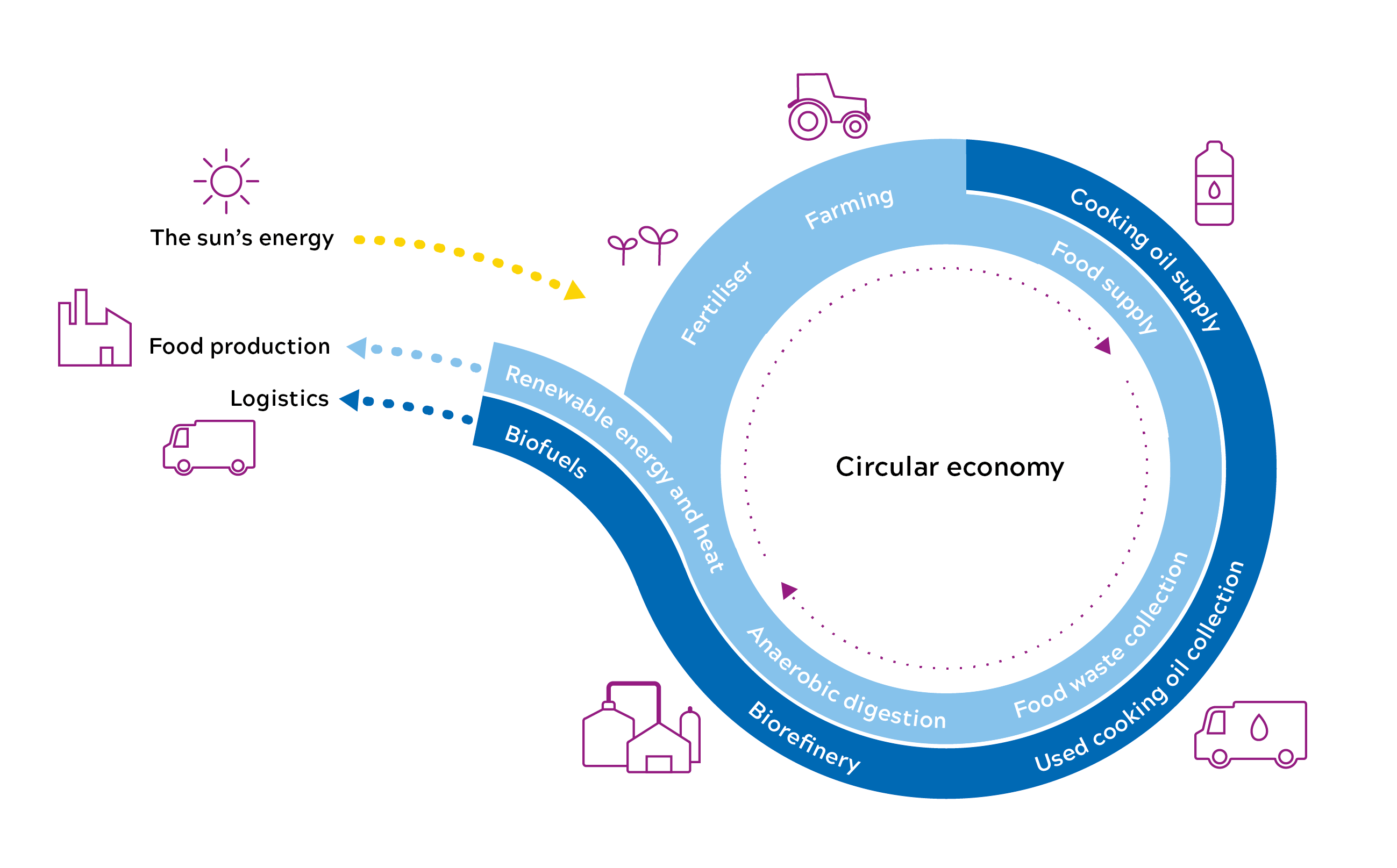{{selectedAlertBand.alertDescription}}
{{selectedAlertBand.incident.heading}}
Message last updated - Saturday 27th July 2024
{{selectedAlertBand.incident.heading}}
Message last updated - Saturday 27th July 2024
Message last updated - Saturday 27th July 2024
{{selectedAlertBand.alertLinkText}} {{selectedAlertBand.alertLinkText}}
For further updates subscribe
Did you know that 71,500 Food Service Establishments trading in our region, could all be generating additional revenue every year? They could be selling their used cooking oil and kitchen fats oils and grease to be used as a renewable resource - recycled into biofuel or biodiesel.
Embracing a circular economy is not only about reducing what we use, but also recycling and reusing what we can. Materials can be used to make renewable fuels for vehicles, energy, and organic fertiliser for farmers to grow fresh crops to start the process all over again.

Cutting-edge technology
Our recommended partners use a specialised process called transesterification to recycle unwanted and used cooking oil and fat waste. This cutting-edge technology converts the unwanted kitchen waste into premium bio products, lowering carbon footprint and operational costs by recycling cooking oil waste. Some of our approved suppliers offer the whole cooking oil cycle with an end-to-end service giving you peace of mind that you’re disposing of this waste resource in the greenest way possible. By recycling your cooking oil, it can reduce your carbon emissions by up to 85% compared to fossil fuel.
Greener, safer, cheaper
The demand for clean energy sources is expected to grow by 1200% by 2030 and it's estimated that £99m worth of potential revenue is sitting in our sewers instead of being recycled and reused as energy. By selling fats, oils and grease as a waste resource, additional revenue can be generated. The business is also protected from internal sewer flooding, bad smells and potential legal penalties as the waste is no longer going down the sinks.
The value of FOG
Waste grease in all forms is a very valuable resource when recycled - this includes used cooking oil & brown grease collected from grease traps. Find out more about the value of used cooking oil and brown grease here.
You can arrange for used fat, oil and grease to be collected by a registered waste carrier. Remember to keep the Waste Transfer Note they give you on your premises for two years in case of possible inspection. To find a collector, visit environment.data.gov.uk/public-register